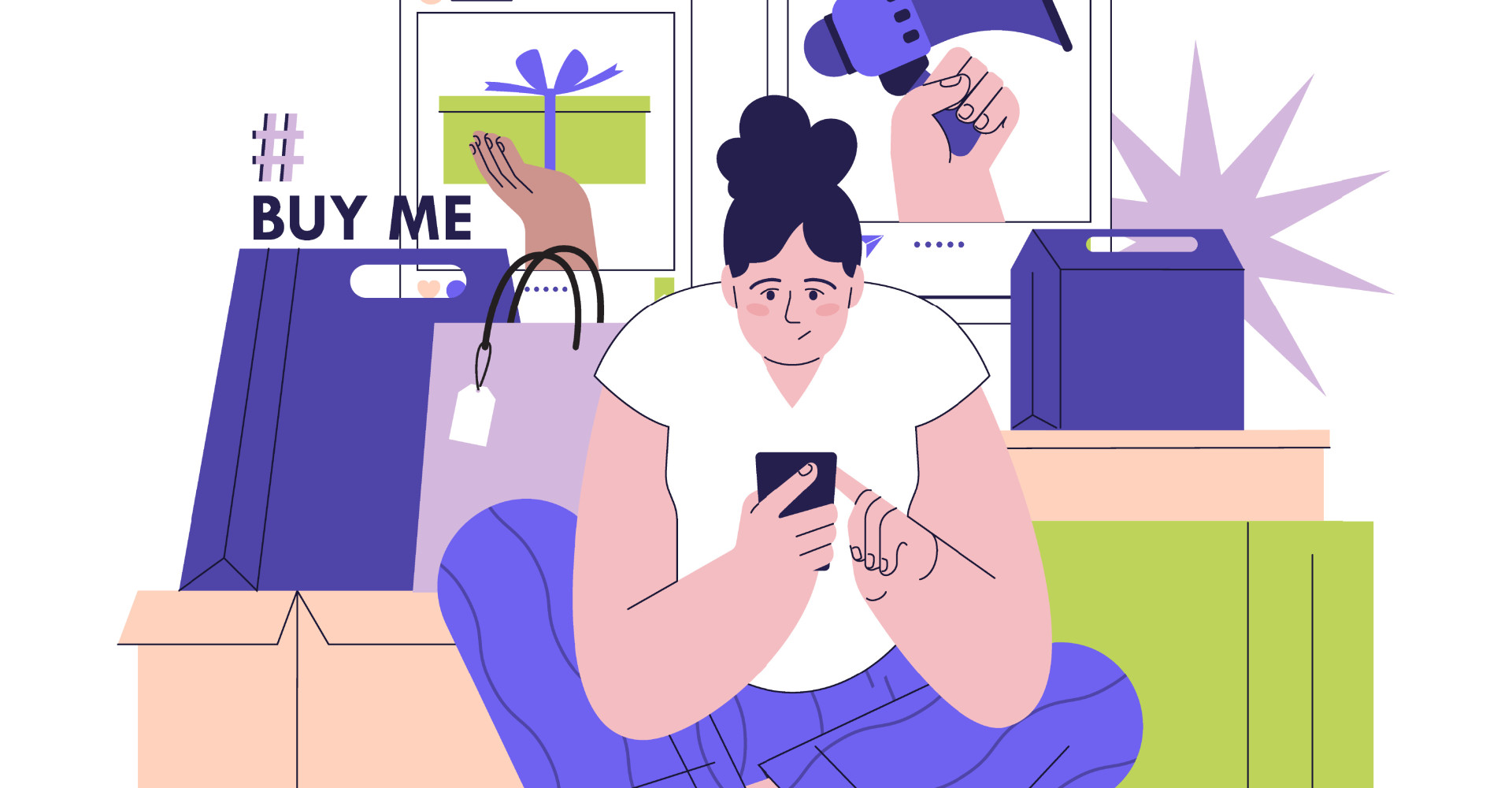Picture the scene: it’s 2016 and a catalogue credit provider sends you an email as their brand new customer:
“We’re super excited to tell you that your application…has been successful!”
“So all those hot new season trends, gorgeous going out dresses and amazing new styles for your home are even more affordable”
“Take as long as you like – pay at least £5 or 7% of the balance each month – whichever is the highest. Interest will be charged at your account rate.”[1]
See the problem? Desirable new clothing within reach – but only if you borrow money and pay interest for the privilege. Does that really mean the items are more ‘affordable’? Or is it normalising getting into debt by buying non-essential (yet desirable) goods?
Emmanuel Asuquo, a financial advisor, writes frankly in his book:
“Why do you want a loan? Any loans taken out for lifestyle or appearance-based reasons are not loans you should be getting, my friend. Keep your lips the size they are. Stay wearing Primark. It’s all good.”[2]
Your car may be a more essential asset than trendy clothes, but there are still pitfalls. Emmanuel Asuquo writes:
“If you’re taking out a loan just for enjoyment, and at the end of it you’ve got nothing to show for it, think again. Take a car loan, for example: you’re taking out a £20k loan to buy a car. The car costs £20k. When you buy it it’s worth £20k, five minutes later it’s worth £17k. By the time you’ve paid off the loan the car is worth £6k. Don’t forget that you have borrowed £20k, but you’ll be paying back something like £22k. Mad. That is not good business. That’s not how it’s supposed to be, my friend.”[3]
And what about overdrafts? Overdrafts can be particularly pernicious because it barely feels like borrowing money at all. For one last time, let’s hear from Emmanuel Asuquo again:
“They live in their overdraft and are overwhelmed by it. They get paid, and that’s the only day they’re out of their overdraft. Then the bills come and they’re back in it. They look at the money like it’s theirs. Like ‘I have £1,000 and a £1,000 overdraft, so I have £2,000’ – no you don’t. It’s not yours. That money is not yours to spend. It’s the bank’s money – please understand that.”[4]
The Money Charity says 17% of adults in the UK have £0 or less (in other words, using an overdraft) in their current account the day before they’re paid[5]. So although most people don’t use an overdraft like that, 17% is clearly a significant number of people in this country not using an overdraft in the way it should be used.
In its May 2018 high-cost credit review, the Financial Conduct Authority observed:
“Overdraft use had been normalised to the point that it was not seen as debt or borrowing. Users justified their use by reference to peers – as ‘only what everyone else is doing’. Repeat users that cleared their balance each month (full or in part) considered their pattern of use as low risk and short term, and were not thinking about the cumulative impact”[6]
Other than the ‘only-what-everyone-else-is-doing’ attitude, it seems that people are reluctant to talk about money at all in day to day conversations – according to a study:
“Half (50%) of UK adults believe that talking about personal money matters is taboo in everyday conversation; higher than sex (42%), religion (26%) or politics (14%).” [7]
What may not help is the feeling of leave it to the bank, and everything will be ok. This was explained in a June 2019 report:
“…because financial institutions have consumers’ money, they have a natural presence and an authority in our society, and therefore, as consumers, we are often more inclined to believe in what they do or say, rather than stop to question it. Many also indicated that the knowledge and expertise in and around overdraft lies with current account providers, and it was both natural and sensible to defer to them as ‘the experts’.” [8]
Banks and lenders are seen as the experts when it comes to borrowing money. And to a large extent this is perfectly understandable. Afterall, the regulations put in place by the regulator (the Financial Conduct Authority) mean that banks and lenders have to lend responsibly. It’s not enough for a lender to simply say that they provided a customer with a loan because that’s what the customer really wanted.
Nevertheless, we’ve seen shocking examples of lenders trying to pass blame on to the customer when unaffordable lending has taken place. For example, when Ms D complained that a hire purchase agreement was unaffordable, the lender said the following:
“Ultimately it was for the customer to decide if the repayments were affordable based on her proposed expenditure patterns which she has the ability to control and influence through discretionary, non-essential household expenditure” [9]
An Ombudsman from the Financial Ombudsman Service strongly rebutted this lender’s stance by saying:
“I don’t agree nor do I believe this reflects the requirements placed on lenders by the regulator. In fact the decision and burden for that decision is placed mostly on the lender as they have the ability to make the proper and measured assessment of someone’s financial position.” [10]
As consumers, these are all questions we may want to ask ourselves:
- Is my lender encouraging me to borrow money to buy things for enjoyment?
- Is borrowing for enjoyment right for me, and what will I end up with?
- Does talking frankly about money need to be a taboo?
- My bank or lender may be the experts, but should they go unchallenged?
- Who is really to blame if I borrow money I can’t afford to pay back?

[1] Genuine email from a catalogue credit lender to a customer
[2] Emmanuel Asuquo ‘Get Your Money Right’ (London: HarperCollins, 2023), page 124
[3] Emmanuel Asuquo ‘Get Your Money Right’ (London: HarperCollins, 2023), page 124
[4] Emmanuel Asuquo ‘Get Your Money Right’ (London: HarperCollins, 2023), page 122
[5] https://themoneycharity.org.uk/the-money-stats-september-2023-bills-pile-up-for-struggling-uk-households/
[6] https://www.fca.org.uk/publication/consultation/cp18-13.pdf page 54
[7] https://www.lloydsbankinggroup.com/assets/pdfs/media/press-releases/2019-press-releases/lloyds-bank/lloyds-bank—the-m-word-press-release_final.pdf
[8] https://www.fca.org.uk/publication/research/fca-overdraft-proposals-consumer-research.pdf page 15
[9] https://www.financial-ombudsman.org.uk/decision/DRN5003607.pdf
[10] https://www.financial-ombudsman.org.uk/decision/DRN5003607.pdf
